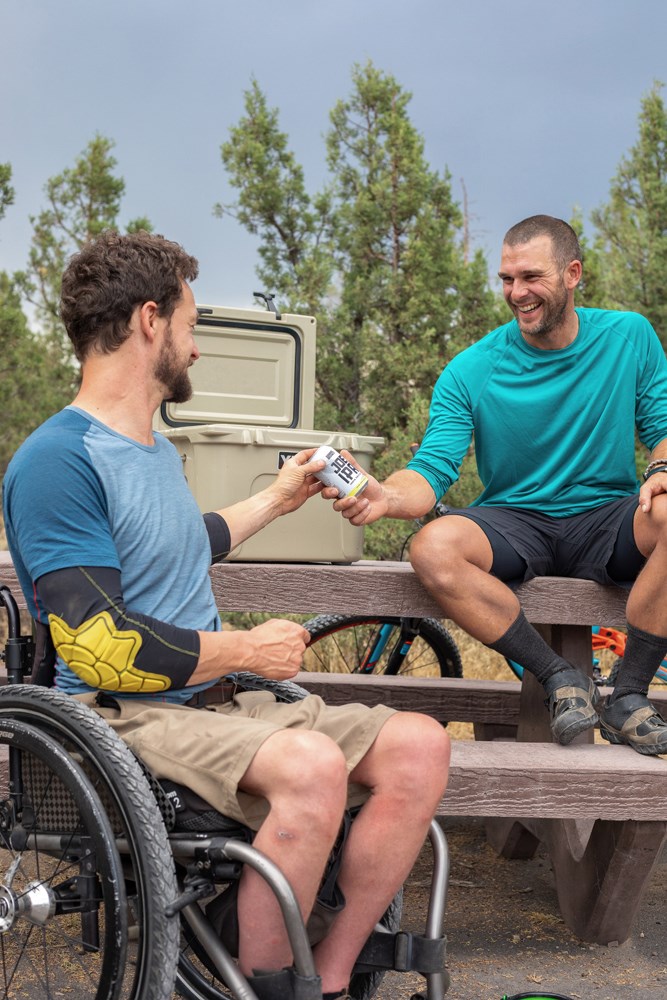As the fallout from the COVID-19 pandemic rolls on, sports organizations serving �鶹�����find themselves in an array of situations going forward.
Like any business affected by the crisis, there are a variety of situations in which a club could find itself, ranging from some that are seeing a fairly equal decrease in both costs and revenue to some that are losing significant funding and are being forced to closely analyze budgets to get through.
Among the latter is the �鶹�����Off-Road Cycling Organization (SORCA), which is anticipating a significant drop in revenue, according to executive director Helen Beynon. In 2019, the club boasted 2,140 members to fund its trail work, but with all its fundraising prongs, including membership, sponsorship and events, all limited, the organization is looking at contingencies.
"We're going to do our best to keep a smaller trail crew operating on a reduced budget, so the trails are still in great shape for people now, and when this is all over," Beynon said in an email. "That said, we are going to lose a lot of volunteer hours without our monthly trail days. So any individual volunteer efforts that people can make — safely — definitely help."
Beynon said the club will look into wage-subsidy funding and is awaiting more information on what may be available for non-profits. In the meantime, bikers are encouraged to keep up with the SORCA newsletter and its social media, as the club will provide updates on how to help and how to safely continue to use the trails.
"If you choose to use the trails for any recreational purposes, do so very safely, only with people you live with, and stay at least six-feet away from anyone else," Beynon wrote. "We're very lucky to still be allowed to use the trails at this point."

Meanwhile, Whistler Adaptive executive director Chelsey Walker said the organization could take no risks and shuttered its in-person programming at the first hint of the pandemic approaching.
However, after putting in hard work, the group has moved its services online with eight classes a week for athletes to meet up with coaches through Zoom for everything from strength and conditioning and active stretching to yoga.
"It's been a stressful two weeks just figuring out how we can move forward with operations," she said. "We were one of the first programs to close because with 90 per cent of our client base, our participants and athletes, having compromised immune systems, we had to shut down. There was no other way."
She added that the organization is seeing an increase in participation from some of its clients who live further away, such as in Squamish, which has been a welcome knock-on effect.
Walker explained that for families of Whistler Adaptive clientele, offering online classes is a "lifeline" and a chance for those caregivers to reclaim some of their own time.
"We're all about providing respite for parents or other family members who might be in a caregiving situation. If we can give them an hour off to go do something else … it provides that support that is so desperately needed at this time," she said.
Walker said Whistler Adaptive is starting to look into which funding and grant opportunities are available, including as an autism service provider.
While its major fundraiser, an annual gala in May, is off, Walker said Whistler Adaptive isn't ringing alarm bells, especially after holding several successful small fundraisers in recent months.
"We tend to be quite fiscally prudent as an organization and we look to keep six months of core operating funds in the bank so we could carry on if we were able to lose a major donor or sponsor," she explained.
Meanwhile, Tim Sjogren, the president of �鶹�����Youth Soccer, said the club recently had to cancel its fall/winter wrap-up, including fundraising barbecue, for roughly 600 players.
Looking ahead, identification camps for next year's select and development teams are typically held in April, but with spring programming on holds, it's proving to be difficult.
"We're having to do remote conversations with coaches with not having and on-field time, so that's different," he said.
As for players, the organization is looking for creative ways to keep them connected, encouraging meetings via Zoom and motivating players to keep working on their skills, even doing timely workouts such as filming videos juggling a roll of toilet paper.
Sjogren added that with low overhead, the club isn't overly impacted financially and should be able to weather the storm.
"We're in a good position," he said. "We've had some sponsorship dollars and we have revenue that we generated this year and held over from last year, so we're in a good spot at the moment."




